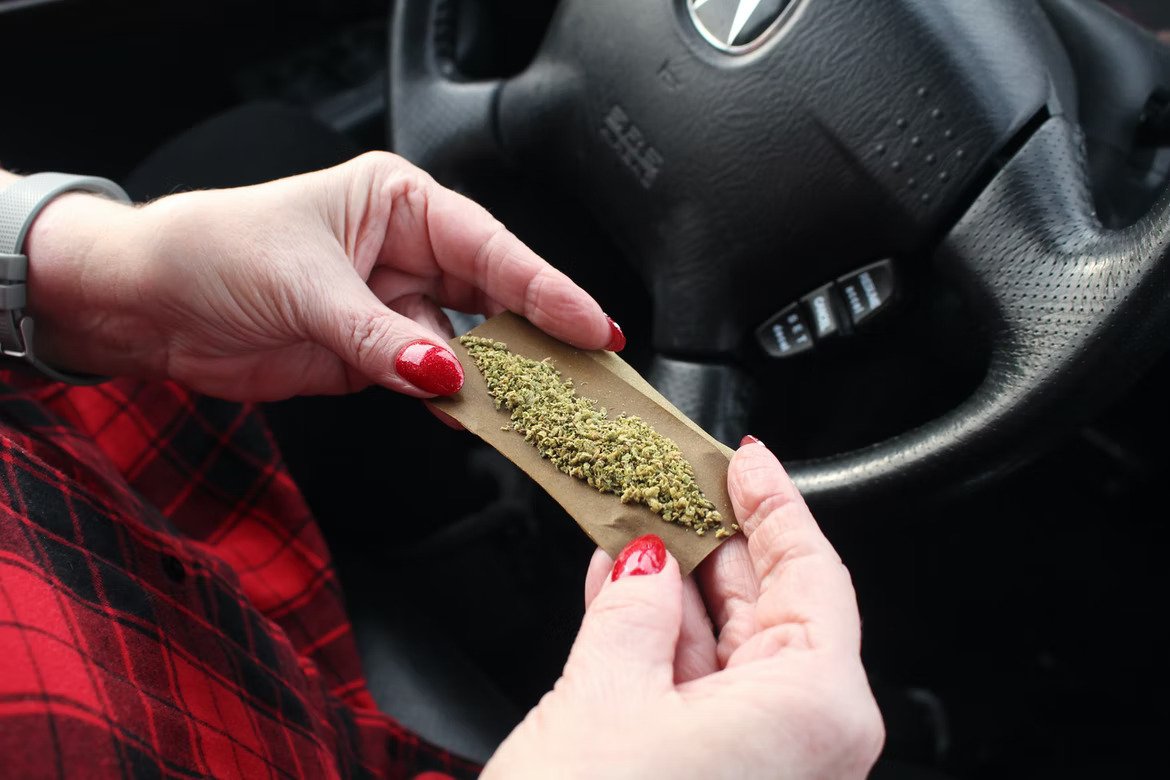You are here
Home 🌿 Recreational Marijuana News 🌿 Some Canadians drive while believing they are impaired by alcohol cannabis or other drugs, MADD Canada survey shows 🌿Some Canadians drive while believing they are impaired by alcohol cannabis or other drugs, MADD Canada survey shows

Many Canadians drive after consuming alcohol, cannabis, and illicit drugs, medications (prescribed or not) or other substances for recreational purposes or to get high even though they believe they are impaired, according to MADD Canada’s second National Survey On Driving After Alcohol, Cannabis, Or Drug Use. These behaviours are elevated among young males aged 18-34.
The poll, released during Impaired Driving Prevention Week, March 20 – 26, was conducted by Ipsos on behalf of MADD Canada. It asked Canadians aged 18-70 with a valid driver’s licence, about consumption of alcohol, cannabis, and illicit drugs, medication (prescribed or not) or other substances for recreational purposes or to get high, and whether they had driven while believing they were impaired by these substances.
Among the 67% of drivers who used alcohol in the past 30 days, 6% drove at least once in the past six months believing they were impaired, with just over a third (35%) driving with passengers.
- Among the 27% of drivers who used cannabis in the past 30 days, 7% drove at least once in the past six months believing they were impaired, with a slight majority (56%) driving with passengers.
- Among the 16% of drivers who used an illicit drug, medication (prescribed or not) or other substance for recreational purposes or to get high in the past 30 days, 7% drove at least once in the past six months believing they were impaired, with a vast majority of these (83%) driving with passengers.
“Despite the laws, despite the awareness, and despite the possibility of crash, death or injury, some Canadians continue to drive after consuming alcohol, cannabis or drugs, when they believe they are impaired, and many of them have passengers on board,” said Eric Dumschat, Legal Director for MADD Canada.
“It is both alarming and unacceptable that these drivers are willing to risk their own safety and the safety of others.”
Increased Rates Among Young Males
The survey results showed that young males, aged 18-34, are the most likely group to drive after alcohol, cannabis or drug consumption.
- Among those who had consumed alcohol in the past 30 days, 13% drove believing they were impaired, with 67% having passengers on board;
- Among those who used cannabis in the past 30 days, 13% drove believing they were impaired, with a sizeable portion of those having passengers on board*;
- Among those who used an illicit drug or a medication (prescribed or not) or other substance for recreational purposes or to get high in the past 30 days, 12% drove believing they were impaired, with all of them having passengers on board*.
*It should be noted that the reported figures for driving with passengers on board when believing one is impaired by cannabis or an illicit drug, medication (prescribed or not) or other substance for recreational purposes or to get high are based on very small sample sizes. Regardless, some males aged 18-34 (and others) are engaging in these unacceptable behaviours.
Misperceptions About Seriousness of Impaired Driving
The number of Canadians expressing some level of indifference or expressing some misconceptions regarding impaired driving continues to be of great concern.
- Three in ten (30%) of those surveyed think there is a big difference between driving after consuming alcohol and driving after consuming cannabis;
- About one in ten (10%) each think it is ‘no big deal’ to drive after consuming a few drinks, consuming cannabis, or consuming an illicit drug, medication (prescription or not) or other substance for recreational purposes or to get high.
- About three in ten (29%) have ridden as a passenger in a car with a driver who was impaired.
“The survey results suggest the need for new and different education, awareness and outreach strategies to address misperceptions, to change impaired driving behaviours, and to reduce the rate of passengers who get into vehicles with drivers who have been drinking, consuming cannabis or other drugs,” Mr. Dumschat said.
420 Intel is Your Source for Marijuana News
420 Intel Canada is your leading news source for the Canadian cannabis industry. Get the latest updates on Canadian cannabis stocks and developments on how Canada continues to be a major player in the worldwide recreational and medical cannabis industry.
420 Intel Canada is the Canadian Industry news outlet that will keep you updated on how these Canadian developments in recreational and medical marijuana will impact the country and the world. Our commitment is to bring you the most important cannabis news stories from across Canada every day of the week.
Marijuana industry news is a constant endeavor with new developments each day. For marijuana news across the True North, 420 Intel Canada promises to bring you quality, Canadian, cannabis industry news.
You can get 420 Intel news delivered directly to your inbox by signing up for our daily marijuana news, ensuring you’re always kept up to date on the ever-changing cannabis industry. To stay even better informed about marijuana legalization news follow us on Twitter, Facebook and LinkedIn.




